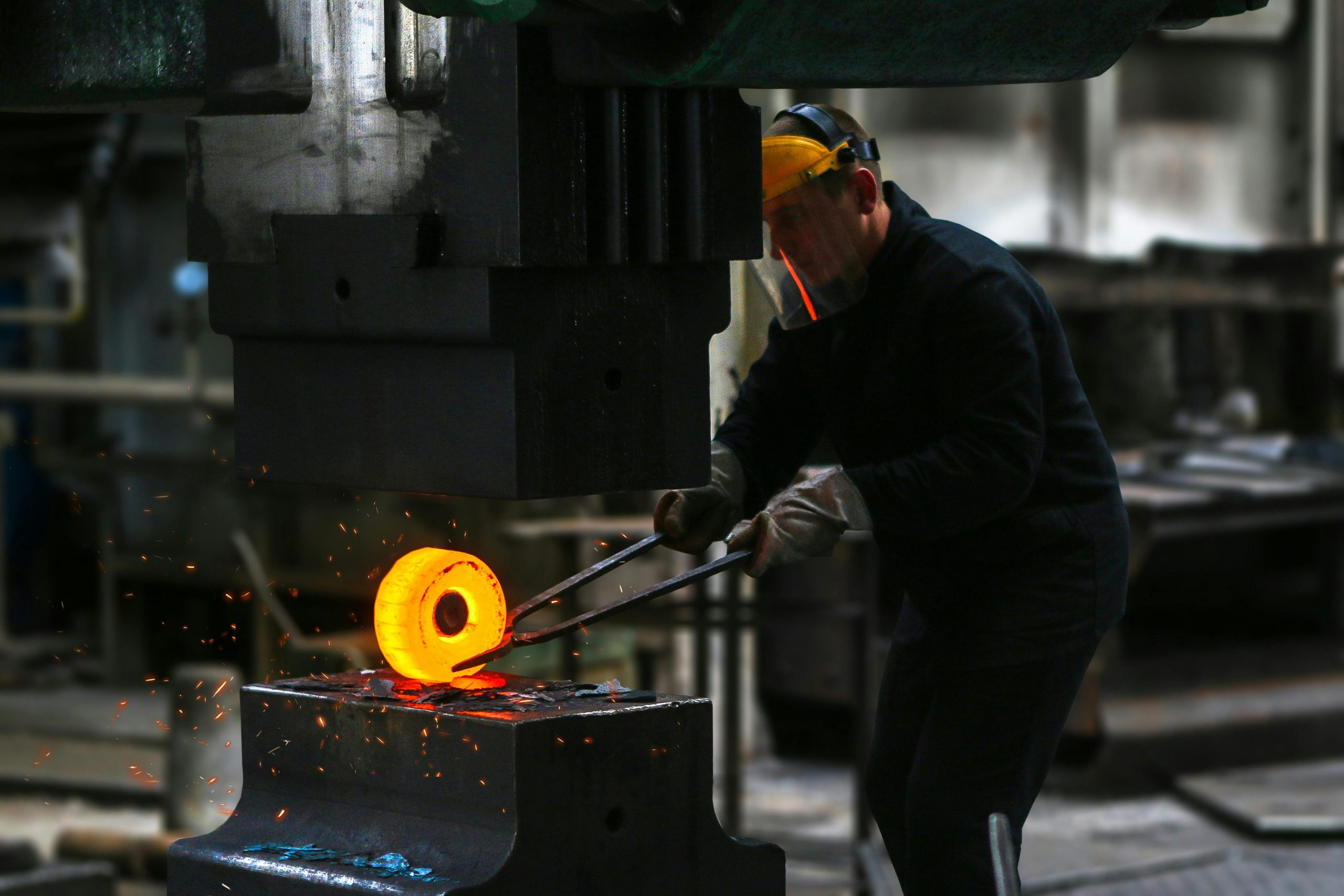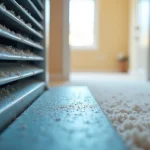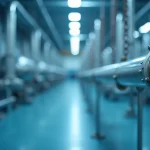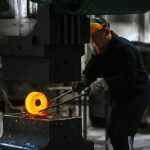Industrial processes demand refractory materials precisely matched to their unique conditions. Custom solutions optimize thermal resistance, durability, and efficiency by considering factors like temperature, chemical exposure, and mechanical stress. Vulcan Refractories combines expert consultation with advanced materials from silicon carbide to zirconia to deliver tailored products tested in real-world settings, ensuring high performance and reliability across sectors like steel, glass, and cement manufacturing.
Overview of Custom Refractory Solutions for Industrial Applications
Custom refractory services address specific operational demands by combining tailored design, advanced materials, and industrial expertise. MXS Refractories, with the website mxs-refractories.com, exemplifies this approach, offering precise solutions that meet the toughest industry standards.
Topic to read : Why Are UK Business Services Essential for Economic Growth?
Their process begins with detailed consultations to assess critical factors such as temperature, chemical exposure, and mechanical stress. Customers choose from a variety of core materials, then submit detailed drawings to develop prototypes. These prototypes undergo real-world testing directly at client sites, ensuring that performance and durability are validated before full-scale production.
Once satisfaction is confirmed, Vulcan begins mass production, adhering to strict quality controls. They emphasize timely delivery, ongoing customer support, and innovations that optimize thermal efficiency, extend equipment lifespan, and improve operational safety.
Also to read : Why Are UK Business Services Essential for Economic Growth?
This tailored approach incentivizes industries like glass, steel, and cement to depend on high-performance, industry-specific refractory solutions.
Designing and Developing Custom Refractory Products
Custom refractory linings begin with an in-depth consultation to address thermal, chemical, and mechanical demands. Using the SQuAD approach: precision starts by identifying the core operating conditions, followed by tailored CAD submissions detailing custom refractory shapes and sizes. This seamless process ensures each fireproof material design meets strict industrial heat resistant material standards for its intended use.
Material Selection and Composition
Decisions on advanced refractory composites hinge on the application’s temperature, corrosion risk, and required durability. Refractory engineering services draw from a wide selection high alumina, silicon carbide, and zirconia all of which influence thermal insulation customization and enhance thermal shock resistant linings. The latest innovations enable castable refractory formulations optimized for thermal conductivity reduction and abrasion resistance.
Prototype Development and Testing
Bespoke kiln lining solutions are prototyped and sent for real-world testing, allowing for early detection of refractory lining wear patterns. Feedback is critical for refining custom refractory solutions, especially when advanced ceramic fiber modules and trialing mineral fiber refractory solutions. After successful validation, full-scale production follows strict refractory project management guidelines.
Quality Assurance and Regulatory Compliance
Every step incorporates refractory industry standards, from material sourcing to refractory durability testing. Certification and detailed traceability reinforce safety, while maintaining reliable refractory repair techniques and robust refractory maintenance and repair programs support ongoing operational efficiency.
Key Technologies and Materials in Custom Refractory Manufacturing
Custom refractory linings rely on advanced industrial heat resistant materials such as hybrid mullite, silicon carbide, and zirconia-based blends. These components, combined with specialized refractory bonding agents and high temperature resistant coatings, create solutions engineered for demanding environments. The introduction of advanced refractory composites and erosion-resistant linings improves durability, making them ideal for challenging industrial settings.
Material Advantages and Industry Applications
Thermal shock resistant linings significantly reduce maintenance needs in applications experiencing rapid temperature changes. In steel and glass manufacturing, tailored ceramic fiber insulation and castable refractory formulations are chosen for their ability to withstand aggressive thermal cycles and physical impact. For cement and petrochemical sectors, abrasion resistant combustion linings enhance operational lifespan and process reliability. Each custom refractory lining is calibrated to match the thermal insulation customization and fireproof material design demands of its target industry.
Technological Processes in Manufacturing
Manufacturers use CAD design for refractory components to achieve precise custom refractory shapes and sizes. Sophisticated refractory engineering services leverage casting, shaping, and bespoke kiln lining solutions backed by rigorous refractory material testing. These processes include thermal conductivity reduction evaluations and mechanical strength assessments to secure consistent product quality across all applications.
Enhancing Performance through Customization
Customization is key for optimizing industrial furnace optimization and energy efficiency in refractory applications. Engineers adjust refractory thickness customization and fit, enhancing both heat containment solutions and wear resistance. Integration of refractory surface coatings and corrosion-resistant linings ensures longevity, while advanced refractory composites further support thermal retention and structural stability.
Industry Case Studies and Expert Insights
Refractory engineering services often demand a high level of customization and technical precision. In one steel industry furnace lining project, engineers leveraged custom refractory linings and advanced industrial heat resistant materials specifically formulated to withstand aggressive wear, high operating temperatures, and abrupt thermal cycling. Executing this involved detailed refractory system design using CAD to create personalized furnace lining systems. The project’s real-world testing confirmed striking improvements thermal insulation customization reduced energy consumption, while thermal shock resistant linings extended operational lifespan.
In glass manufacturing, refractory engineering services tailored bespoke kiln lining solutions with tailored ceramic fiber insulation. Specialist teams focused on enhancing durability and reducing heat loss via strategic castable refractory formulations and heat-resistant brick installation. Performance metrics demonstrated both immediate and long-term gains, such as lower thermal conductivity and increased resistance to chemical attack, highlighting the value of consistently optimized refractory material testing.
Industry trends show ongoing refractory material innovation and the rise of digital tools for refractory lining installation techniques, strengthening project efficiency and accuracy. Growing pressure for sustainable solutions is also shaping new thermal insulation customization approaches by integrating recycled content and improving refractory waste recycling practices. Constant evaluation of refractory industry standards ensures these advancements meet rigorous operational, safety, and environmental requirements.
Custom Refractory Solutions for High-Performance Industrial Needs
Custom refractory linings are engineered through a process that begins with a thorough needs assessment. The foundation of efficient heat containment solutions and industrial heat resistant materials lies in choosing the correct compositions and assemblies for each unique operating condition. After reviewing the requirements for temperature, chemical resistance, and mechanical pressure, engineers move on to selecting the most suitable castable refractory formulations and tailored ceramic fiber insulation. This drive for customization ensures that thermal shock resistant linings withstand routine thermal cycling.
Clients participate directly in detailing custom refractory shapes and sizes. Prototype products are then developed for real-world testing, allowing businesses to evaluate the actual performance of bespoke kiln lining solutions. This stage is critical for evaluating both refractory durability testing and compatibility with existing industrial furnace optimization methods.
Attention to compliant refractory installation safety procedures is vital throughout the process, from preparatory risk assessments to validated refractory repair techniques. Ongoing refractory maintenance and repair services further ensure refractory system design contributes to long lifecycles and reliable industrial output. Advanced refractory composites and fireproof material design support efficiency, while refractory project management practices guarantee timely delivery and continuous technical support. The result is a seamless integration of refractory engineering services with evolving operational needs.








